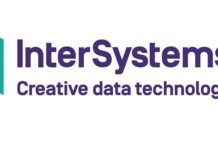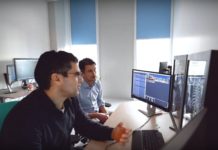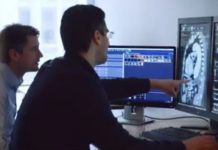An interview with Michelle Troseth, Chief Professional Practice Officer at Elsevier Clinical Solutions. Michelle is associated with Elsevier from past 10 years and is working to provide best care everywhere. At HIMSS AsiaPac 2016 Conference in Bangkok she guides us on the topic of clinical practices and how evidence-based technology tools can benefit clinicians to provide quality care.
Questions:
1.What are the most essential elements of clinical practice?
The most essential element of clinical practice is delivering consistent evidence-based care. This means using the best clinical research and expertise available, and integrating the patient’s values and what they care about as well. Evidence-based practice plays a critical part in excellent clinical practice.
Another essential component of excellent clinical practice is the inter-disciplinary aspect of working together in teams, so that each discipline is not working in silos. This is becoming more important today as we look at resources and population health.
2. How do Elsevier’s solutions integrate with EHR to raise quality at every point of care?
Elsevier has had a lot of experience with integrating evidence-based content into electronic health records, and providing ways for clinicians to get answers when they have questions, which are important from a quality perspective of the electronic health record. One of my favorite quotes by Dr. Edwards Deming who is the godfather of quality is: “It is not enough to do your best; you must (first) know what to do, (and) then do your best.”
We are working to provide evidence-based content within the electronic health record so clinicians can do their best. It is one thing for a nurse to say, “I know how to do this procedure”, or “I know how to care for this particular problem”, but then does things differently from other nurses or disciplines. For clinicians to get consistent, evidence-based content is what we are striving for.
3. What are the biggest challenges in implementing evidence-based technology tools?
The biggest challenge is always change; breaking the patterns of how clinicians have always cared for patients. It may also be that clinicians are not used to using evidence-based tools in their practice consistently. At Elsevier, we show them why this is important and the benefits it has which can make a big difference.
Another challenge is that technology needs be designed so that it is intuitive and useful. If technology is not designed in the best way, it can be a barrier. Elsevier can help in this aspect because we know how clinicians think, and our content is based on clinical expertise.
4. How do Asian and western markets differ in clinical practice?
Western practice focuses on the scope of practice and helping clinicians practice at the “top of their license”. Western clinicians are really empowered to deliver their care. I think it varies in how this plays out in the Asian markets. When working with nurses and other disciplines, we want them to bring all their clinical expertise and education while they’re caring for patients, but I don’t think both markets are aligned in this area.
5. How do you see Elsevier’s contribution to healthcare management in the near future?
In the near future, Elsevier is going to be a key player in coordinating patient care across different episodes. When we look especially at chronic care, for instance, of a heart failure patient, the care coordination required for evidence-based care outside the hospital, inside the hospital, and in the physicians’ offices, is going to be really important.
For health management, Elsevier will play a key role in patient engagement in getting the patient engaged with providing data, as well as how we educate patients. This is done using technology tools, and bringing in all the fundamental elements of clinical practice, and all the knowledge that clinicians need to make the best decisions, and being able to do that more efficiently and across all different professions.
























